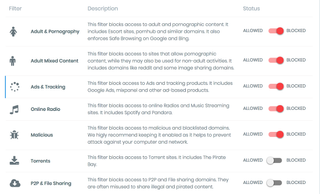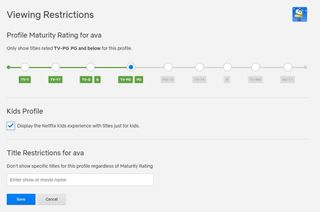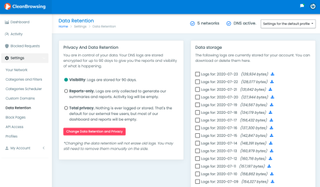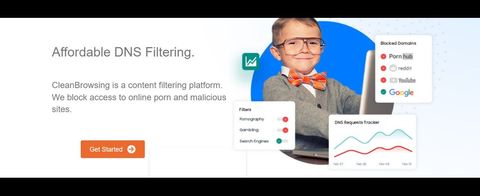TechRadar Verdict
If you want to surf the web as safely as possible, adopting CleanBrowsing’s DNS filtering service is a smart thing to do.
Pros
- +
Free filters available
- +
Fast connection
- +
Custom content filtering
- +
Strong encryption
Cons
- -
Limited customer support
Why you can trust TechRadar
In 2018, two entrepreneurs – Daniel Cid and Tony Perez – teamed up to launch a DNS service with a focus on content filtering. They named their product CleanBrowsing to fit their intentions of empowering users to surf the web safely.
A common use case of CleanBrowsing is for parents to protect their children from improper content online. It can also protect your device from malicious and phishing domains.

CleanBrowsing: Plans and pricing
CleanBrowsing is a freemium service. It provides three free content filters via IPv4 and IPv6; Family Filter, Adult Filter, and Security Filter, and these filters have pre-defined allow/deny lists. If you want custom content filtering, you’ll have to choose from one of its premium plans; Basic, Pro 50, and Pro 100.
The Basic plan supports up to 25 devices or 125,000 requests daily. At $60 per year, it's ideal for household use. The Pro 50 plan, as the name suggests, supports up to 50 devices, or 250,000 requests daily. At $110 per year, it's ideal for schools or libraries.
The Pro 100 plan supports up to 100 devices or 500,000 requests daily. It costs $220 per year and is ideal for mid-sized enterprises. If your needs surpass 100 devices, you can contact CleanBrowsing’s sales team and arrange a custom plan.

CleanBrowsing: Features
CleanBrowsing is first and foremost a DNS resolver. DNS stands for domain name system, the decentralized naming system governing the web. It’s what translates human-readable domain names (e.g., YouTube.com) into machine-readable IP addresses (199.223.232.0).
Whenever you input a web address of your browser, it’s a DNS resolver that recognizes that web address and matches it to its corresponding IP address to bring out the right website. Most web surfers use their internet service provider’s default DNS resolver, but there’s no shortage of dedicated DNS resolvers (e.g., CleanBrowsing) that offer better features.
The main feature of CleanBrowsing is DNS/content filtering, that is, automatically blocking requests to specific types of sites. As we’ve mentioned earlier on, the platform offers three free filters; Family Filter, Adult Filter, and Security Filter. The Family Filter blocks access to pornographic and explicit sites alongside proxy and VPN domains typically used to bypass such filters. It also blocks malicious and phishing domains alongside a few mixed content sites, such as Reddit.
The Adult Filter blocks adult, pornographic, and explicit sites, but does not block proxy or VPNs or mixed-content sites like Reddit. The Security Filter blocks access to domains associated with phishing, spam, malware, and other malicious online operations.
How do the free filters work? The answer is simple. CleanBrowsing maintains a database of domain names associated with the type of content it’s meant to block. For example, it maintains a database of malicious domains used to spread malware, and this database is updated frequently. Hence, if your computer requests to visit any domain in the database, either intentional or by error, it automatically blocks the request and prevents you from interacting with the malicious website.
You may also want to block specific websites of your own volition. For example, you may want to block access to entertainment sites while your kid uses the internet to handle their schoolwork, so they don’t get easily distracted. Schools may also want to block access to entertainment or social media websites at specific time intervals to prevent distractions for their students. To do this, you need to subscribe to a premium CleanBrowsing package.
As a premium subscriber, you can create custom allow/deny lists for everyone using your network. Hence, any request to a web address on the deny list will automatically get blocked. You can also create custom filters by blocking a specific group of web addresses, and, afterward, switch this filter on or off at any time.
Traditionally, DNS queries and replies are performed over plaintext, but you can encrypt them with CleanBrowsing to make it difficult for snoopers to monitor your DNS queries or corrupt them in transit. The platform uses three protocols to encrypt DNS queries: DNS over TLS (DoT), DNS over HTTPS (DoH), and DNSCrypt.
CleanBrowsing also lets you configure data retention policies to a good extent. On one end, you may dictate that it keeps no logs of your DNS queries, and, on another end, you may set it to keep logs of DNS queries for as long as 90 days. If you keep logs, you can see all the DNS requests from any device connected to your network for the specified period.

CleanBrowsing: Interface and use
It’s pretty easy to use and configure CleanBrowsing. If you want to use the free filters, all you have to do is change the DNS server addresses on your device to the ones provided by the platform. If you need to use the more advanced features like content filtering (hence a subscription), you can download the app on your desktop (macOS and Windows) or mobile phone (iOS and Android).
CleanBrowsing: Support
Premium users have access to direct email support from CleanBrowsing’s support team. There are also detailed user guides and documentation on the official website to help you get familiar with the platform.
CleanBrowsing: The competition
There are many alternatives to CleanBrowsing. Some are completely free, e.g., Google Public DNS, while some require a subscription to access the full features, e.g., NextDNS. CleanBrowsing doesn’t offer much to differentiate it from the competition. It’s just another DNS resolver out there offering similar features.
CleanBrowsing: Final verdict
We consider CleanBrowsing a decent DNS resolver to adopt if you want to protect yourself from malicious sites or prevent your kids/wards from accessing adult content. The platform is pretty easy to use and offers good features (encryption, custom filters, etc.) for a reasonable price.
The main drawback we observed is the limited (email-only) support for paid users, whereas many competitors offer live chat and telephone support.
Stefan has always been a lover of tech. He graduated with an MSc in geological engineering but soon discovered he had a knack for writing instead. So he decided to combine his newfound and life-long passions to become a technology writer. As a freelance content writer, Stefan can break down complex technological topics, making them easily digestible for the lay audience.


